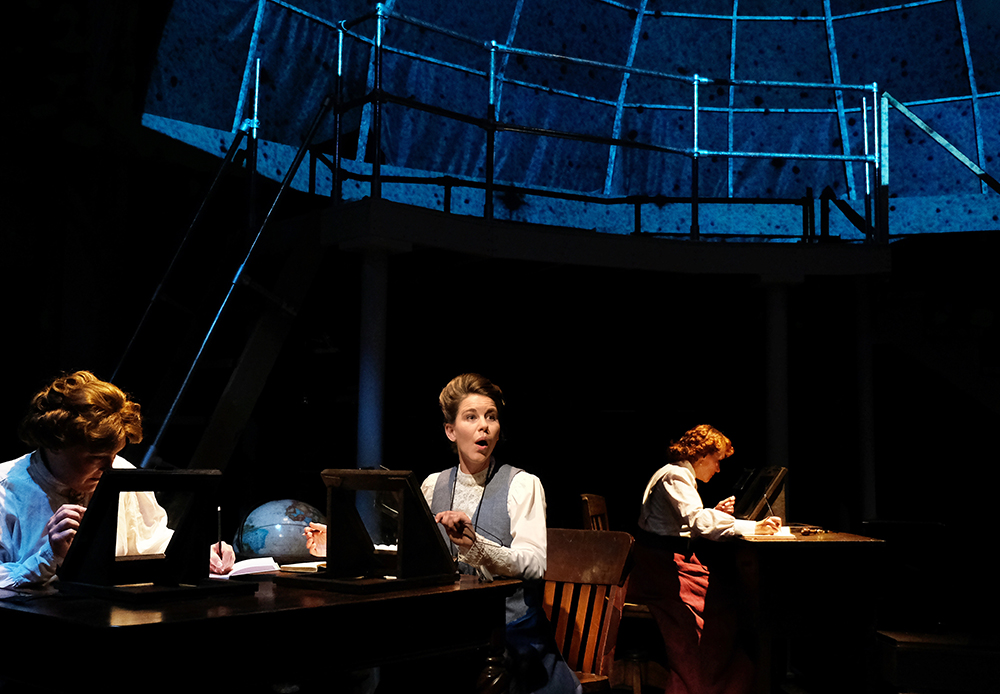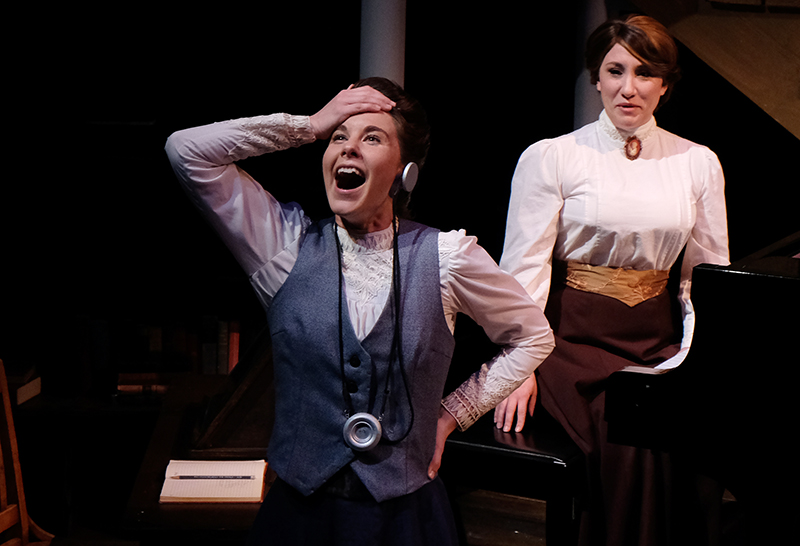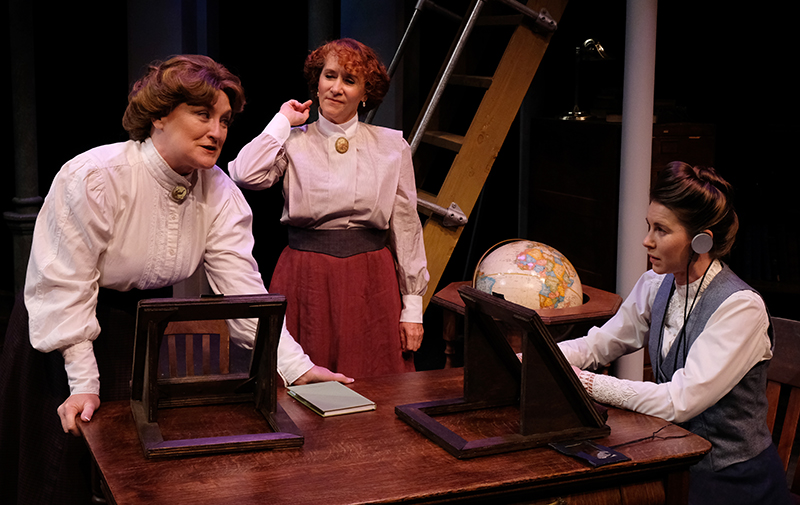This is the year, it seems, to celebrate a worthy and unexplored topic in American history: women and astronomy. If you enjoyed the Oscar Award-winning film Hidden Figures, now is the time to venture into Coronado’s cozy, world-class theater on Orange Avenue and see a similar and equally-inspiring story about a woman who loved the stars.
“I read the script [for this play] two years ago,” Lamb’s Players Artistic Director Robert Smyth said to his audience before the play began. “I thought, ‘We have to get this play!’ Finally I secured the rights to it. Little did I know that this playwright, Lauren Gunderson, would be the most-produced playwright in the entire country this year, with her plays in three different San Diego theaters alone!”

With this introduction, Lamb’s Friday-night audience settled back eagerly to watch the play unfold. As always, the impressive set design began to tell the story even before the play started. A beautiful half-dome screen formed a ceiling over the stage with stars twinkling and shooting on its surface. Below stood a grand piano and a studious, turn-of-the-century office with clothbound texts and heavy desks.
When the lights came up, a young woman stood before us, wrapped in a thick woolen sweater and stargazing on a cold winter night. It is the early 20th century, and vivacious, headstrong Henrietta Swan Levitt (played by Rachael VanWormer) had just received her ticket out of Minnesota with a job offer at the Harvard Observatory in Cambridge, MA. Finally the questions she has about the stars, about mathematics, and about her own existence will be answered.
She explains to her sister, Margaret (played by Caitie Grady):
“I have fundamental problems with the state of knowledge of the universe. Where are we?”
“Minnesota,” her practical sister replies.
“In the universe.”
“… Still Minnesota,” Margaret deadpans.

Once in Cambridge, Henrietta meets the two larger-than-life women that she will work with at the Observatory.
No-nonsense Annie Cannon (played by Cynthia Gerber) explains, “Our motto around here is, the sky’s the limit…”
“… and there’s so damn much of it!” the third woman counters.
This final colleague is Williamina Fleming, played by Deborah Gilmour Smyth. Smyth has just finished a memorable performance in the Lamb’s play Shadowlands. After the weightiness of that role, which she played to perfection, it was delightful to see her throwing her full self into this part and having so much fun with it; she drew many laughs from the audience.

In her new job, Henrietta also meets young and flustered Peter Shaw, played by Brian Mackey. He explains that Henrietta’s role at the Harvard Observatory will be to work as a “computer,” taking slide photographs from the telescope and performing calculations to aid the professors in their research. The three women in the Observatory literally comprise the “computer department” in an age before calculators and external hard drives.
Henrietta, however, is devastated to learn the scope of her new job. She expected to be able to look through the famous Great Refractor Telescope (the largest in United States for a time) and work side-by-side with the professors, but instead because of her gender she finds herself regulated to basic mathematical equations.
Never one to be put down for long, though, Henrietta jumps into her work, and she soon begins to notice and track patterns in the stars that no one has observed before. Over time, her dedication and years of careful research will lead to a discovery that totally transforms astronomy, as well as our knowledge of where we are located in the universe. In a time when scientists thought that our world ended at the edges of Milky Way, Henrietta proved that the universe is vaster than we could have ever dreamed.

Along the way, Henrietta and the other characters undergo heart-warming and tear-jerking transformations of their own. Margaret, stuck back in Minnesota, clings tight to her faith in God even when Henrietta abandons hers — and then begins to find it again. There is the tender beginning of a love story, and the thrill of scientific discovery, and the transformation of women’s rights in the 1910s. The play, based on a true story and a true person, expands our own knowledge of both our own history and the stars above our heads.
As always, Lamb’s does not disappoint in choosing a good story and telling it well. The acting is whole-hearted and heart-warming, and the play itself is brilliant, informative, and fascinating. Now through May 28, catch this sparkling star of a play!
More information, tickets, and military and student discounts available on the Lamb’s Players website.





